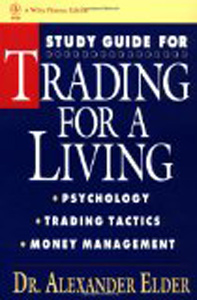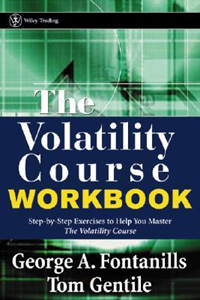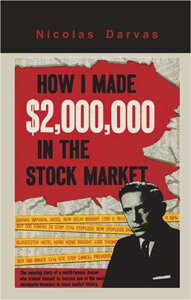Glossary of Stock Trading and Investment Terminology
In terms of the Australian stock market, a market maker is a broker who creates a simulated market, quoting both a buy and a sell price in a financial security, either a stock or a derivative (e.g. ASX instalments, forex dealers or certain CFD brokers). Market makers make their profit from the bid offer spread. Because marketmakers quote buy and sell simultaneously, they create liquidity in the market.
The London Metal Exchange (in short LME) is known as the premier non-ferrous metals market of the world which offers options and future contracts for various types of metals including aluminium, copper, lead, tin and zinc. In addition to this, it offers two regional aluminium alloy contracts as well. The exchange has started trading plastic during 2005. It is to be mentioned that, iron and steel are not traded at LME since it is a non-ferrous exchange.
Investing at London Metal Exchange: Different Trading Methods
Equipment Finance allows business owners to have access to equipment for their businesses without investing their cash reserves in purchasing equipment at full price. A lot of business owners these days consider leasing necessary equipment by utilising the leasing services provided by the banks, accountants and finance brokers instead of buying them.
“Borrowing to invest” refers to borrowing money from a lender or financial institution to buy shares, bonds or managed funds. It is similar to taking out a mortgage to buy a house, land or any other property. This is a common practice among the investors and considered as an effective financial strategy as long as the entire procedure is managed properly. The whole idea of “borrowing to invest” is to invest more money in the market (stock market or managed funds) to increase profitability.
In case of Direct Market Access (DMA), both the CFD prices and liquidity remains equal to the underlying market. This is why traders or investors can enter positions at the identical market price when it comes to direct market access. Investors who follow this particular model are termed as the DMA CFD traders.
“Moving Average Convergence/Divergence” or in short MACD is a technical indicator which is used to analyse the relationship between two moving averages of prices. MACD calculates the difference between two Exponential Moving Averages (EMA) which is considered as a trend-following momentum indicator.
The bid/offer spread refers to the difference between the bid price and offer price. To be more specific, it is the difference between the highest amount that a buyer is willing to spend for an asset and the lowest price/amount in exchange of which the seller is willing to sell it. “Bid price” is the selling price while the “offer price” is the purchase price.
For instance, if the bid price is $25 and the offer price is $26, then the bid/offer spread is going to be $26 - $25 = $1.
Bid/offer Spread- from the Perspective of the Stock Market
Absolute return funds (sometimes called non-directional funds) seek for positive returns regardless of market trends. Absolute return fund is a type of hedge fund. Conservative investors who want low risk and are willing to give up some return find absolute return funds helpful. Hedge fund managers can also use many different investment tools within an absolute-return strategy.
Cash rate refers to the interest rate that a financial institution pays for borrowing or charges to the lend funds in the money market in an overnight basis. According to the Reserve Bank of Australia (RBA) cash rate is the operational target for implementing monetary policy. According to RBA, the interest rate that a financial institution (a bank) pays or charges to another bank for borrowing or lending money in an unsecured basis is the cash rate, something that is also known as the interbank overnight rate.
If you are looking for a way to smoothly move from work to retirement then transition to retirement pension is something that can help you out with it. Once you reach the preservation age- which is usually 55 with the number increasing and can be 60 if you were born after June 30, 1964- you can maintain or reduce the working hours and access the super (which includes the preserved pension) through a super pension.
- How to Trade Forex and Gold Options
- How to Trade the Gold Price and Profit!
- Forex Trading the EUR/USD Pair € EURO and $ US Dollar
- How to Trade Stock Market Indices S&P500
- How to Trade Crude Oil
- Forex Trading Psychology
- What Are Broker Recommendations?
- Free Tickets to Trading & Investing Seminar & Expo ($18) Brisbane 2013
- Stock Calc App
- All About Warrants
- Introduction to Exchange Traded Funds
- Introduction to Exchange Traded Funds: Features
- Introduction to Exchange Traded Funds: Domestic ETFs
- Introduction to Exchange Traded Funds: International ETFs
- Exchange Traded Commodities
- Australian Stock Scan
- Australian Online Share Trading
- List of Trading Books
- Interesting Thoughts about the Australian Dollar
- What's the Meaning of Hawkish?
- Do You Know How To Use the P/E Ratio
- Trading, Religion and Politics - Do They Have Anything in Common?
- Shares that are Volatile that Double and Half in the Short Term
- Telstra (TLS) T3
- Margin Call by E-mail
- The Cost of Holding a Position
- Lack of Disclosure: Compensation from ASX Listed Company
- Unrealistic Returns and Benchmarks
- CMC Markets Down
- Quality versus Quantity Forex Trading
- Woolworths 1H Sales $30.7bn up 3.2%
Date added 31-01-2013 - ASIC Fines CommBank's CommSec
Date added 25-09-2012 - Industry Super Network Calls to Ban High Frequency Trading (HFT)
Date added 22-09-2012 - NAB Launches Online Share Trading Platform
Date added 19-09-2012 - Reserve Bank of Australia Says 23 Countries Holding AUD
Date added 18-09-2012 - Australia Post Digital Mailbox
Date added 10-09-2012 - Winners and Losers of Trading for Week 2
Date added 16-01-2012 - 2012's First Week of the Best and Worst Traded Stocks
Date added 09-01-2012 - 2011's Last Best and Worst Traded Stocks
Date added 05-01-2012 - Best and Worst Pre-Christmas Traded Stocks
Date added 30-12-2011 - Trading Winners and Losers for Dec. 12-16
Date added 19-12-2011 - Best and Worst Traded Stocks for Dec. 5-9
Date added 13-12-2011 - Top 3 Best and Worst Traded Stocks
Date added 05-12-2011 - ASX Glitch Trading Halt
Date added 27-10-2011 - Worst Trade Stocks (and the Best)
Date added 06-08-2011
Top 150 Public Companies Listed on the Australian Stockmarket as at 29/05/2009
- BHP Billiton
- Westpac Banking Corporation (WBC)
- Commonwealth Bank of Australia (CBA)
- National Australia Bank (NAB)
- Telstra (TLS)
- ANZ
- News Corporation (NWS)
- Woolworths Limited(WOW)
- Woodside Petroleum Limited (WPL)
- Rio Tinto
- Westfield Group (WDC)
- Westfarmers Limited (WES)
- QBE Insurance
- CSL
- Newcrest Mining Limited (NCM)
- Origin Energy Limited (ORG)
- Santos Limited (STO)
- AMP Limited (AMP)
- Macquarie Group (MQG)
- Foster’s Group Limited (FGL)



